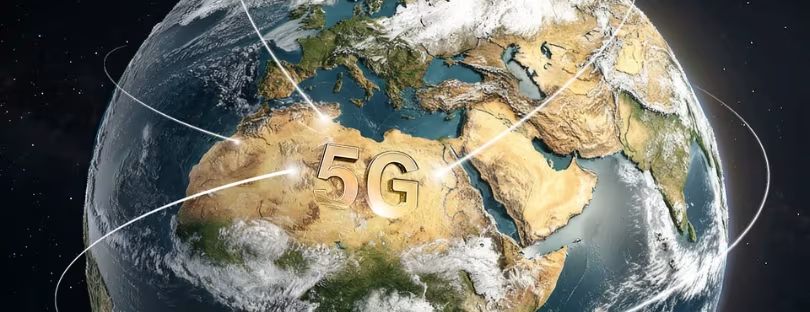
The Future of 5G Mobile Connections: A Comprehensive Guide
The 5G mobile connections revolution is here, bringing with it unparalleled opportunities for faster internet speeds, enhanced connectivity, and transformative technological advancements. As this next-generation wireless network unfolds globally, it is poised to change the way we experience mobile communication.
In this article, we delve into the myriad aspects of 5G technology, how it works, its potential applications, and its far-reaching impact on various sectors of the economy.
What Are 5G Mobile Connections?
5G mobile connections represent the fifth generation of wireless technology, following in the footsteps of 4G and earlier generations. Unlike its predecessors, 5G is designed to provide significantly faster speeds, lower latency, and higher reliability. With speeds potentially reaching up to 10 gigabits per second (Gbps), 5G enables a range of new applications and enhanced user experiences, from seamless streaming and gaming to supporting critical technologies such as autonomous vehicles and smart cities.
Key Features of 5G Mobile Connections
The speed and low latency of 5G mobile connections are what set it apart from previous generations. With a focus on both improving data transfer rates and reducing response times, 5G offers:
- Enhanced Speeds: 5G can provide download speeds up to 100 times faster than 4G, making it ideal for data-heavy applications like high-definition video streaming, virtual reality (VR), and augmented reality (AR).
- Low Latency: 5G significantly reduces latency (the delay before a transfer of data begins following an instruction), making it possible to support real-time communication and instant response systems, crucial for applications in healthcare, transportation, and gaming.
- Massive Connectivity: 5G can support an immense number of devices simultaneously, facilitating the development of the Internet of Things (IoT), where millions of devices can seamlessly connect and communicate without network congestion.
How Do 5G Mobile Connections Work?
5G operates on a fundamentally different network infrastructure compared to 4G. Its underlying technology involves higher-frequency millimeter waves, which allow the network to carry large amounts of data over short distances. The addition of small cell towers placed closer to users helps enhance coverage and improve data transmission rates. These advancements work together to enable 5G networks to meet the growing demands for data and connectivity in our increasingly digital world.
While 5G can use a wide range of frequencies, the most significant improvements come from using high-band millimeter waves, which deliver extremely fast speeds but have a shorter range. To maintain connectivity over a wider area, low-band and mid-band frequencies are also employed, balancing coverage and speed. This network design allows 5G to operate effectively in dense urban environments while also reaching more remote areas.
Applications of 5G Mobile Connections
Transforming Consumer Experiences
One of the primary reasons 5G is so eagerly anticipated is its ability to enhance consumer experiences. Faster speeds and reduced latency will open the door to innovations in entertainment, healthcare, transportation, and more.
- Entertainment and Streaming: 5G will enable ultra-high-definition (UHD) streaming with virtually no buffering. 4K and even 8K streaming will become the norm, providing richer, more immersive experiences for users, especially in mobile and on-demand video content.
- Gaming: With near-zero latency, cloud gaming services like Google Stadia and Microsoft’s xCloud will perform better on 5G networks, allowing gamers to play high-performance games without the need for expensive consoles or high-end computers.
Revolutionizing Industry and Enterprise
Beyond consumer applications, 5G mobile connections are set to drive significant transformations in several industries, including manufacturing, healthcare, and agriculture.
- Smart Manufacturing: 5G’s ultra-fast speeds and low latency will enable smart factories where machines can communicate in real-time, stream data from sensors, and automate processes with greater efficiency. This will lead to improvements in productivity, safety, and cost-efficiency.
- Healthcare: 5G will enable the development of telemedicine applications that can support real-time diagnostics, remote surgeries, and patient monitoring. The low latency of 5G ensures that medical professionals can make quick decisions in critical situations.
- Agriculture: The use of IoT devices, powered by 5G, will help farmers monitor soil health, crop conditions, and weather patterns with unprecedented accuracy. This will facilitate precision farming, allowing for optimized resource use and improved crop yields.
Enabling Autonomous Vehicles
Autonomous vehicles (AVs) are one of the most exciting potential applications of 5G mobile connections. For AVs to navigate safely, they must communicate with each other and with infrastructure like traffic lights, road sensors, and even pedestrians in real-time. The low latency and massive connectivity of 5G will be crucial in ensuring that AVs can make decisions in milliseconds, reducing accidents and improving traffic flow.
Challenges in Implementing 5G Mobile Connections
While the potential of 5G mobile connections is immense, several challenges must be overcome to fully realize its benefits.
- Infrastructure Development: One of the biggest hurdles is the need for extensive infrastructure upgrades, including the installation of small cell towers in urban areas and the expansion of fiber-optic networks to handle the increased data traffic. This requires significant investment and coordination between governments and private companies.
- Spectrum Allocation: Governments need to allocate sufficient spectrum for 5G networks to function effectively. This requires international collaboration to prevent interference between countries and ensure that 5G operates smoothly across borders.
- Security Concerns: As with any new technology, 5G mobile connections bring new security concerns. The increased number of connected devices and the complexity of the network create potential vulnerabilities that must be addressed through robust cybersecurity measures to protect users and critical infrastructure.
The Global Rollout of 5G Mobile Connections
The global rollout of 5G mobile connections is well underway, with major telecommunications companies already deploying 5G networks in key markets. Countries like South Korea, China, and the United States are leading the charge, with extensive 5G coverage available in major cities. Europe, too, is gradually expanding its 5G infrastructure, with many nations planning nationwide 5G coverage by the mid-2020s.
Despite the rapid growth of 5G, the pace of deployment will vary by region, influenced by factors such as local regulatory policies, network infrastructure, and demand. However, as 5G adoption increases, we can expect to see transformative changes in how we live, work, and interact with technology.
Conclusion: The Future of 5G Mobile Connections
5G mobile connections are set to redefine how we experience the digital world. With ultra-fast speeds, low latency, and the ability to connect millions of devices simultaneously, 5G is laying the foundation for a smarter, more connected future. As industries across the globe continue to innovate and adopt 5G technologies, we will see groundbreaking developments in everything from healthcare and entertainment to transportation and agriculture. The 5G revolution has only just begun, and its impact will be felt for decades to come.










